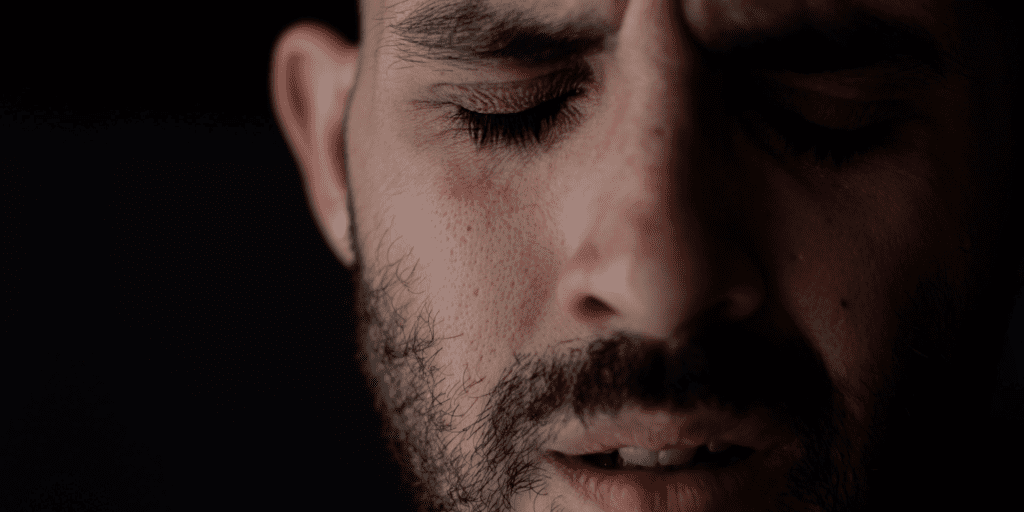When someone works up the courage to reach out for mental health help, they should be able to get the support they need. Unfortunately, in some cases, recovering from depression is not as simple as that. Upon starting recovery, some people discover that their depression treatment is not working. If their recovery plateaus or stalls before it even begins, they may be left wondering what to do next.
Living with depression can already feel like an uphill battle. For someone to find out that their depression is treatment-resistant on top of that can result in feelings of frustration and hopelessness. Luckily, there is always another option. By reassessing treatment plans and researching alternative paths to recovery, anyone can overcome depression.
Contents
Types of Depression Treatment

Even if your current depression treatment is not working, you may still have other treatment options left to explore. There are numerous well-researched methods used to treat depression, and they do not all affect everyone the same way. For this reason, it is important to remain patient and open to new treatment options.
Antidepressant Medications
When some people think of depression treatment, the first option to come to mind may involve depression medications. Antidepressants can accomplish a variety of goals, such as stabilizing moods and increasing the availability of neurotransmitters associated with happiness.
FDA-approved antidepressant medications include:
- Selective serotonin reuptake inhibitors (SSRIs)
- Serotonin and norepinephrine reuptake inhibitors (SNRIs)
- Dopamine reuptake inhibitors (DRIs)
- Tricyclic antidepressants (TCAs)
- Monoamine oxidase inhibitors (MAOIs)
Remember that different classes of antidepressants work differently. In addition, each can pose its own unique drawbacks and side effects. Because of this, it can take time and a period of trial-and-error to discover the type of medication that suits you the best.
If your medicated depression treatment is not working, your current medication may not be the best option for you. You may be eligible to try a different type of antidepressant, or you can investigate another type of treatment entirely.
Talk Therapy
Another one of the most common tools used to treat mental health conditions like major depressive disorder and anxiety disorder is talk therapy. Also known as psychotherapy, talk therapy helps patients work through their emotions in a safe and controlled environment.
During a session, trained therapists use a plethora of techniques to organize someone’s symptoms and help them identify potential causes for their struggles. If someone’s current depression treatment is not working, they could consider taking a different therapeutic angle. For instance, some types of talk therapy focus on self-awareness and coming to terms with certain realities, while others take an active role in reshaping someone’s behaviors.
As an example, cognitive behavioral therapy (CBT) is a specific type of psychotherapy frequently used to treat depression. The popularity of CBT is likely due to its versatility and accessibility. It subscribes to the notion that thoughts, feelings, and behaviors are all connected, and that by adjusting one, someone can change the others in turn.
CBT typically starts with thoughts. A therapist may help their patient identify an unhealthy, harmful belief they have about themself. Afterward, the therapist may assign “homework,” or certain tasks that, when completed, will directly challenge the unhelpful belief. By repeatedly disproving harmful thoughts, patients often see changes and improvements to how they think and behave.
Other Depression Treatments
While psychotherapy and antidepressant medications are the two most frequently used treatments for depression, they are not the only options. If depression treatment is not working and you have only tried the above, there are still other options worth discussing.
Procedural depression treatments can offer unique benefits, especially to those living with treatment-resistant depression. Examples of other specialized procedures and treatment options used against depression include:
- Electroconvulsive therapy (ECT). ECT utilizes mild electric currents to stimulate certain parts of the brain. The resulting discharge of nerve impulses has shown to benefit individuals with mood disorders like depression, even if prior treatments were ineffective.
- Transcranial magnetic stimulation (TMS). TMS is a noninvasive brain stimulation therapy that employs the use of a pulsing magnetic field. The magnetism of the field interacts with the electrically active brain. Its influence can ease the symptoms of those with depression.
- Esketamine nasal spray. A recent clinical trial has shown that, when taken in conjunction with oral antidepressants, esketamine can significantly reduce symptoms of depression. This is especially true in the case of a severe, acute episode of depression, in which a patient experiences active suicidal ideations.
Though not everyone wishes to participate in brain stimulation therapies or try an esketamine nasal spray, they demonstrate the diversity of available depression treatments. For those whose depression treatment is not working, it should be reassuring to know that there are so many potential routes to recovery.
If Depression Treatment Is Not Working

If you’ve already tried to talk to your doctor about other treatment options and been left feeling like you’re at a dead end, know that you still have other choices. Your depression is not “unfixable,” and you are not a failure for needing to take a different recovery angle.
If your depression treatment is not working, it only indicates it may be time to look for something more involved. For example, one of the most prominent approaches for an intensive recovery experience involves inpatient care. A residential mental health program can bridge the gap between traditional depression treatments and treatment-resistant patients.
At Port St. Lucie Hospital, our mental health program utilizes an assortment of evidence-based treatment options, such as:
- Crisis evaluation
- Individual therapy
- Supplemental therapies
- Group therapy
- Medication education and management
- Coordination with community-based resources
- Family counseling and education
Inpatient treatment elevates these treatment options to new heights by combining them together in a single, cohesive program. It offers the most comprehensive level of care possible through its multifaceted approach. Even if isolated depression treatment is not working, residential care can improve someone’s symptoms with careful coordination.
How Is Residential Treatment Different?
At first glance, inpatient treatment may sound like more of the same. After all, it often utilizes different types of therapies and depression medications, some of which you may have tried before. However, residential treatment offers a few key advantages that you cannot get from any other type of treatment.
First, the sheer involvement of inpatient treatment already gives it a sharp edge over other treatment methods. If someone’s depression treatment is not working, it could be that they simply aren’t getting enough of it. Residential care resolves that issue by fully immersing patients in recovery.
For example, if someone is only taking medications or participating in occasional therapy sessions, they likely have a lot of free time left over. They may lack a sense of guidance or structure, especially in regards to their depression.
Without some form of anchored support, someone may have a difficult time making meaningful strides forward alone. Life goes on around them, which can make them feel torn between trying to keep up with it and getting better. As a result, recovery can end up on the back burner.
Inpatient treatment for depression eliminates the external stressors preventing someone from focusing on recovery. Instead, it allows them to turn all of their attention inward and toward genuine self-improvement.
In addition, residential treatment ensures individuals are not alone. If someone’s depression treatment is not working, the last thing they need is to feel isolated as well. During inpatient treatment, all patients are surrounded by compassionate staff members and other peers who can relate to their struggles.
Strong, supportive bonds develop between patients throughout residential programs. Meeting those who will celebrate your victories with you and help you stay motivated through the lows can serve as an irreplaceable boon to recovery.
Depression Treatment in Port St. Lucie, Florida
If your depression treatment is not working and you’re ready to try something new, consider reaching out to Port St. Lucie Hospital. We are a behavioral health treatment center in Port St. Lucie, Florida that provides mental health care to adults in need.
From individuals in acute crisis to those who have struggled with major depression for years, we’ve had the privilege of serving a wide variety of people. Our experience helping with such a broad range of challenges has equipped us with the knowledge and skills necessary to help anyone through their depression.
Even if you have yet to experience successful depression treatment, we can build you a new treatment plan. With the right resources and support, anyone can overcome the symptoms of depression and regain control of their life. Someone whose current depression treatment is not working is no different; they simply need a different approach.
To get started on recovery, call (772) 335-0400 or fill out a confidential contact form. Our team of friendly admissions specialists will answer any questions you have and guide you through the enrollment process. We look forward to helping you in any way we can.


























